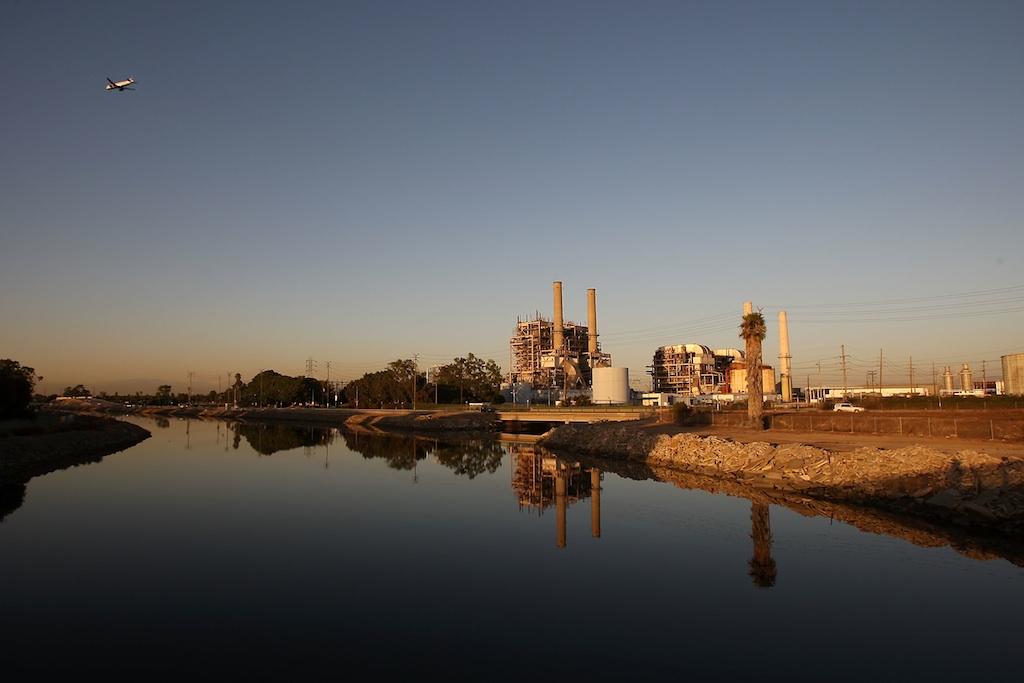US carbon emissions drop to 20-year low
The AES Corporation 495-megawatt Alamitos natural gas-fired power station is seen on October 1, 2009 in Long Beach, California.
The United States' carbon emissions have dropped to a 20-year low, according to a report by the US Energy Information Agency.
The drop is being credited in large part to growing access to cheap and plentiful natural gas, which has allowed many power plants to switch over from burning coal, the Associated Press reported.
“There’s a very clear lesson here. What it shows is that if you make a cleaner energy source cheaper, you will displace dirtier sources,” Roger Pielke Jr., a climate expert at the University of Colorado, told the AP.
The study also pointed to slower economic growth as being responsible for the reduced CO2 emissions. In 2011, the US GDP increased by 1.8 percent, but emissions decreased by 2.4 percent, which suggests that the carbon intensity of the economy declined by about 4.2 percent.
More from GlobalPost: Wind farms in Mongolia could help minimize pollution, reliance on coal
The US has reduced its carbon dioxide emissions more than any other country over the last six years, the International Energy Agency has said.
In 2007, America's CO2 emissions were at an all time high of about 6 billion metric tons. Projections for 2012 are around 5.2 billion, almost meeting the 1990 levels of 5 billion, according to the AP.
However, the United States' carbon emissions are still some of the highest in the world, according to data from the World Bank: in 2008, the US was emitting 17.8 metric tons of CO2 per capita, compared to the world average of 4.76 metric tons.
The United States has also increased its exports of oil as it has decreased it's consumption of the stuff over the past two years, Wired reported.
However, that may have some "unexpected consequences," as Wired pointed out.
"Chief among them is that, as fossil fuels become more abundant—and we consume less of them—the incentives to develop clean, renewable energy drop dramatically. As a result, we may no longer be looking at an age of increasing solar, wind, and nuclear power. Instead we are likely moving into a new hydrocarbon era. And that’s very bad news for climate change."
Our coverage reaches millions each week, but only a small fraction of listeners contribute to sustain our program. We still need 224 more people to donate $100 or $10/monthly to unlock our $67,000 match. Will you help us get there today?
